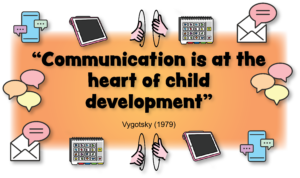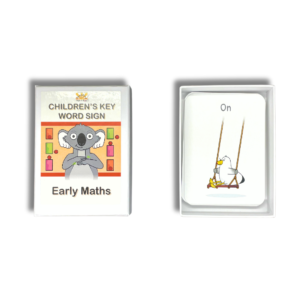Daily Signs – Lanyard Flashcards – Designed for Early Learning Settings – video tutorials
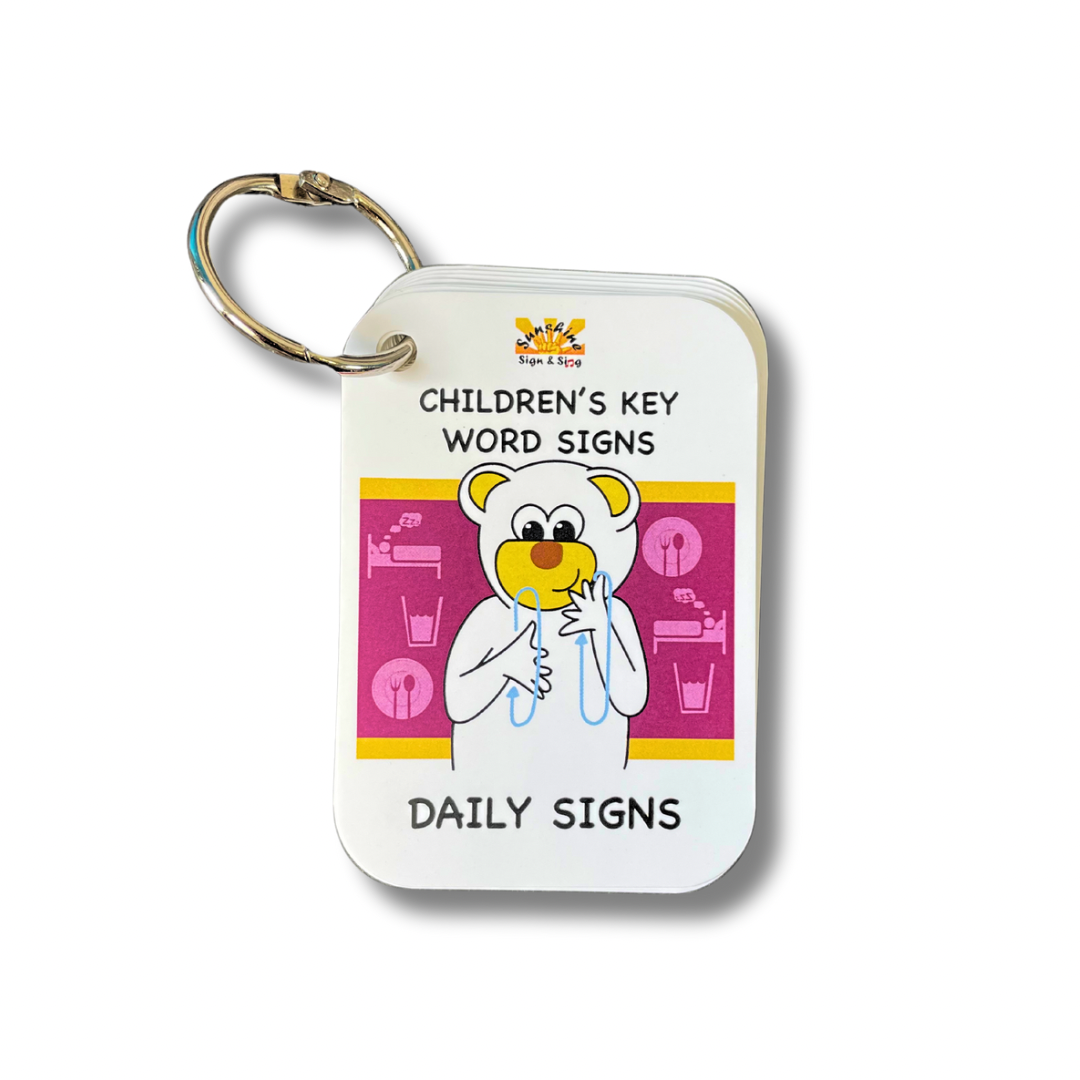

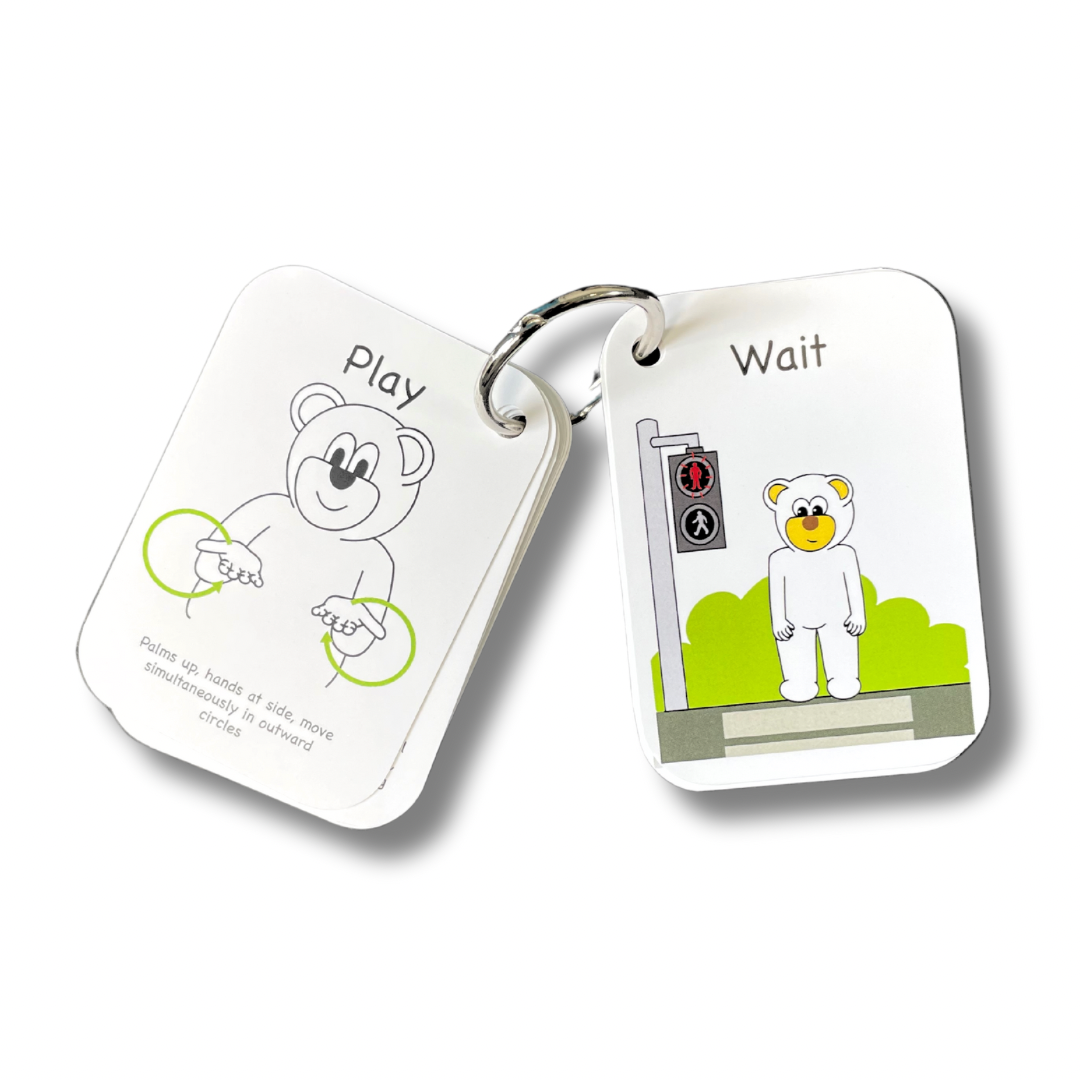



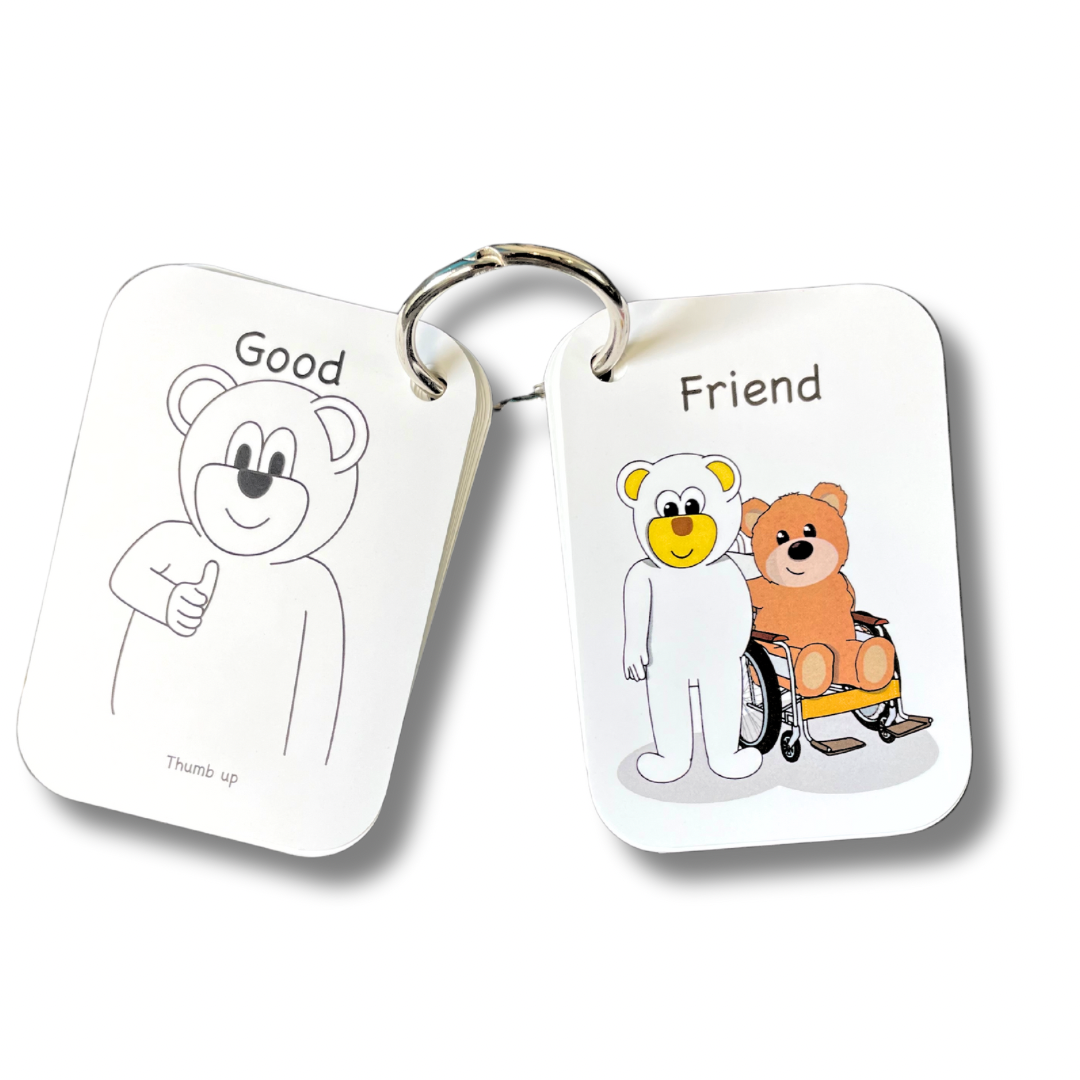

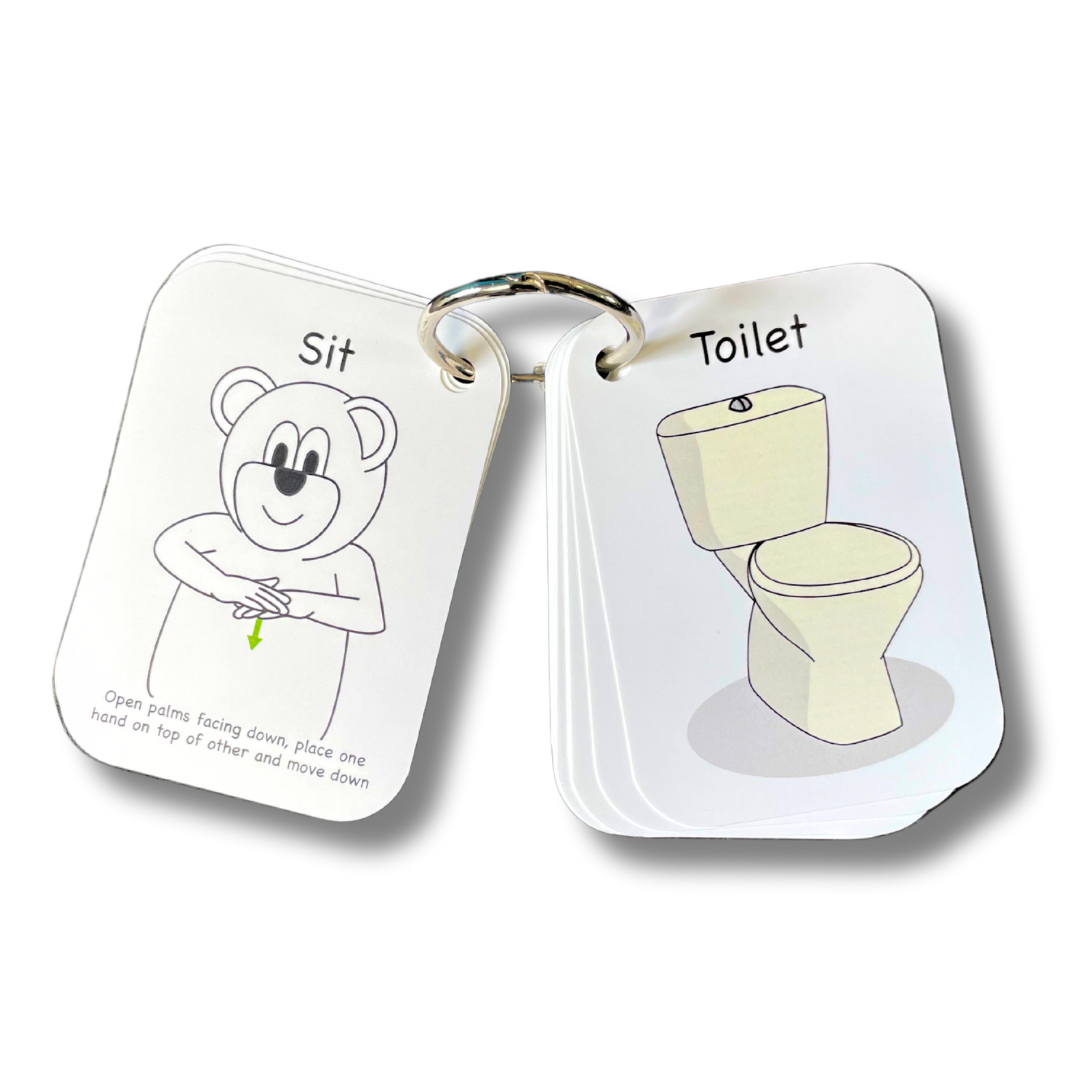

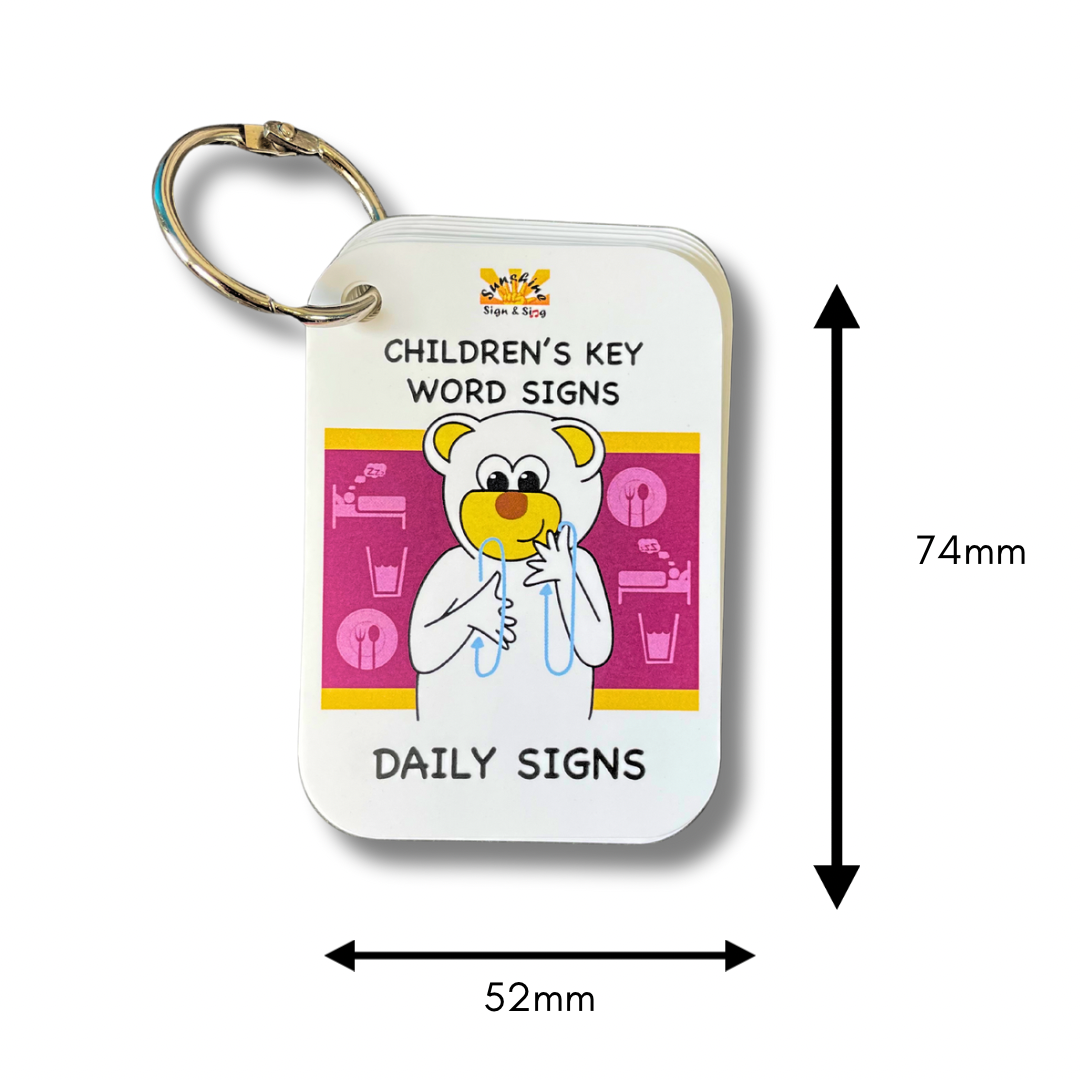





$19.95
Lanyard ‘Daily Signs’ Australian key word sign Flashcards made from Synthetic material on a hinged ring, comes with video sign tutorials.
Description
Children’s Key Word Signing (KWS) Mini Daily Flashcards – Essential Communication Tool for Kids
Product Description: Enhance your child’s communication skills with our Children’s Key Word Signing (KWS) Mini Daily Flashcards. This versatile AAC tool is perfect for parents, caregivers, and educators working with non-verbal, speech-delayed, or neurodivergent children.
Key Features:
- 15 essential daily key word signs: Turn, Drink, Eat, Help, Stop, Play, Home, Sit, Share, Wait, Line up, Finish, Good, Friend, Toilet
- Compact A8 size for keyring or lanyard – perfect for on-the-go use
- Double-sided design: Picture on front, sign illustration and description on back
- Durable synthetic material: Waterproof, tearproof, and wipeable
- QR code link to video tutorials for each sign
- Key Word Sign borrows signs from Australian Sign Language (Auslan)
Benefits:
- Improves communication for non-verbal and speech-delayed children
- Reduces frustration and enhances understanding
- Supports language development and encourages speech
- Ideal for children with autism, ADHD, apraxia, or Down syndrome
- Easy to incorporate into daily routines and games
- Expands communication partners for children using KWS
Why Choose Our KWS Flashcards: Our mini flashcards are designed to make learning Key Word Signing fun and accessible. They’re not just a learning tool – they’re a bridge to better communication, helping children express their needs and wants effectively. Whether you’re at home, in an early learning setting, or out and about, these flashcards are your go-to resource for supporting your child’s communication journey.
Ideal For:
- Parents of non-verbal or speech-delayed children
- Early childhood educators
- Speech therapists and occupational therapists
- Caregivers of children with special needs
- Anyone looking to support inclusive communication
Start empowering your child’s communication today with our Children’s Key Word Signing Mini Daily Flashcards!
Key Word Signing, KWS, AAC tool, non-verbal children, speech delay, autism communication, ADHD, apraxia, Down syndrome, Key Word Sign Auslan signs, communication flashcards, special needs education, early childhood development

